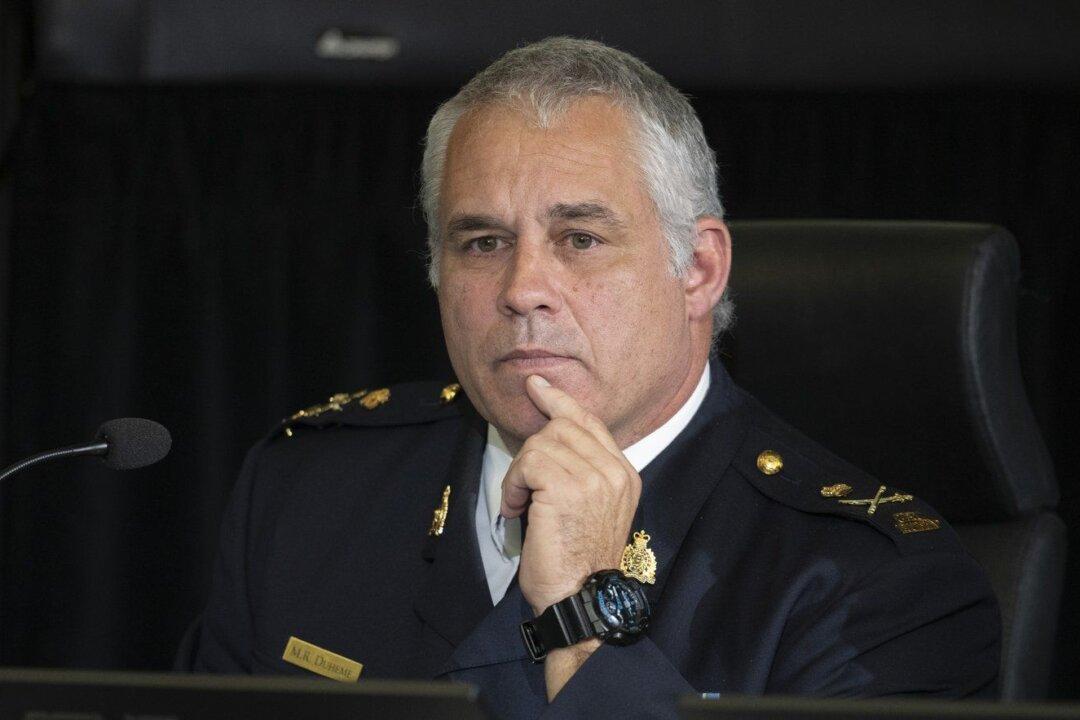The federal government announced Friday that Mike Duheme will be the interim commissioner of the RCMP until a replacement is found for Brenda Lucki.
Lucki, who was appointed commissioner in April 2018, is retiring. She had announced her intention to step down last month, shortly before the expiry of her five-year term.





